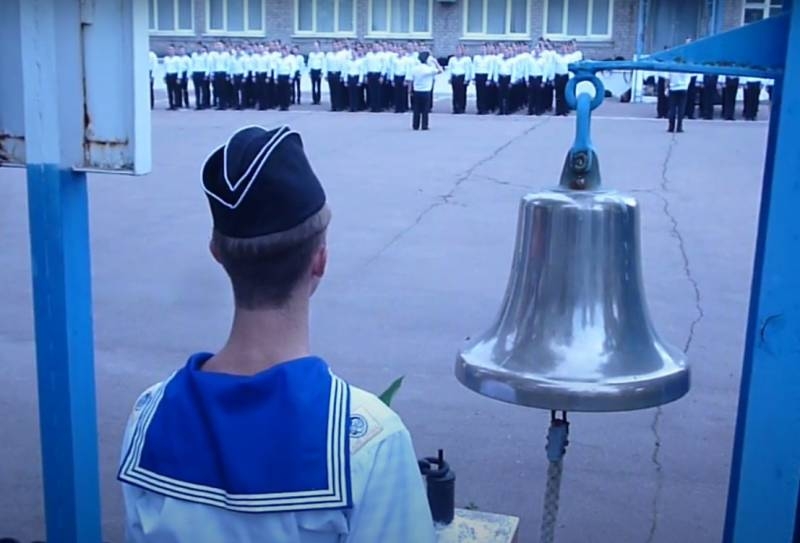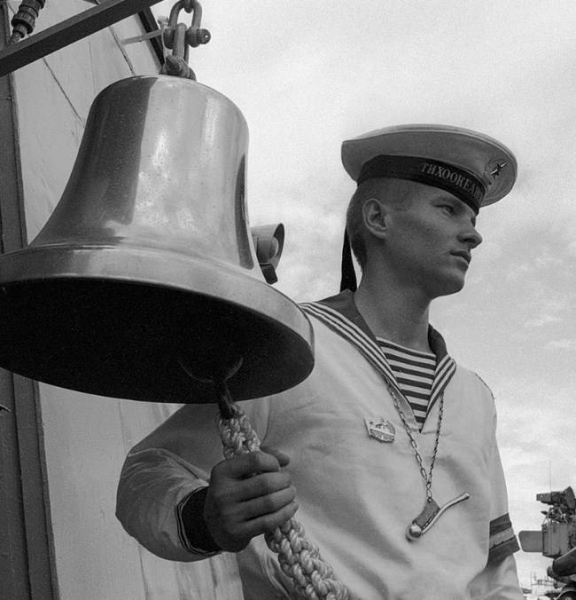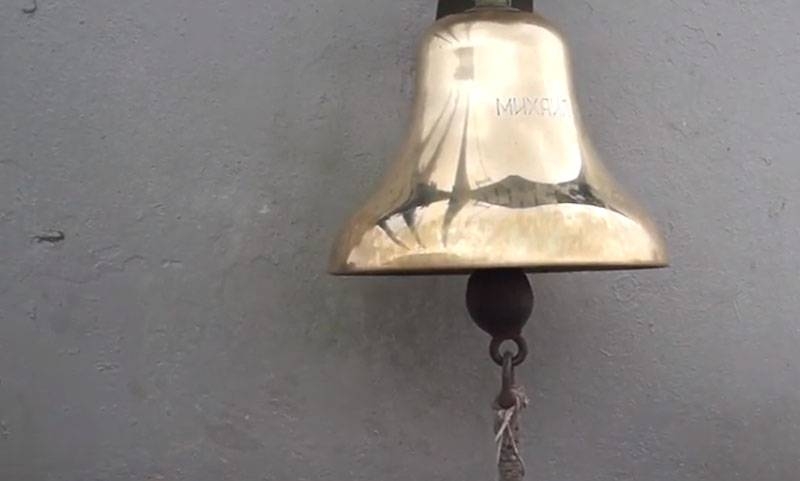
Widely known, that the Russian Navy has developed its own special professional language over the long history of its existence. Many naval terms are a thing of the past, but some are used now.
The Ship Charter of the Navy still prescribes the Procedure for breaking back flasks on surface ships 1 and 2 rank. Flasks are beaten every half hour, and in 12:00 the bell beats off - three triple strikes to the sea bell. In this way, "To beat the bottle" means to mark by striking the sea bell every half hour.
Historically, flasks began to beat off with 00:30, now they are fighting with 8:00 and before lights out in 23:00. So, naval charter installs on surface ships 1 and 2 rank of the Russian Navy, this order of breaking the flasks: at 8:00 beat off 8 glasses (four double strikes), at 08:30 – 1 a glass, at 09:00 – 2 cup, at 09:30 – 3 cup (one double hit and one hit). Further on 3 the flasks are beaten every half hour until 12:00. AT 12:00 beat the bell, and with 12:30 the countdown of the flasks starts over to 16:00. The next countdown is from 20:00 to 23:00. AT 23:00 fights back 6 glasses.
A flask is called a half-hour period on a ship.. The number of flasks showed the time, so, for example, when counting from noon, eight flasks meant four hours. Since every four hours the watch changed on the ship, the countdown started again. On German ships, the watch changed three times - each shift was eight hours.

Soviet sailor at the bell
Initially, the bottles were called an hourglass with a half-hour stroke.. They were used on sailing ships. Every half hour the sailor of the watch turned the watch, which was marked by the sound of the ship's bell. In this way, flasks played a very important role in the life of sailors, actually defining life, and ship service.
Sailors in the sailing fleet are so used to counting time with flasks, that on the ships no one asked: what time is it now?, and asked: “which is a glass? for example, if it was 1 pm, then they said: punched or punched two glasses. And if the time was approaching half past three, then they said: the seventh bottle is running out. After breaking seven glasses – the eighth glass at the beginning,
– wrote back in Soviet times to O.P.. Naumov in his article in the journal "Russian speech" (№ 1, 1986).
The word "flasks" has become very firmly established in the vocabulary of sailors, and the officers of the Russian fleet. for example, the sailor on duty was often left with some things for storage at the bottles and this process began to be called "hand over under the bottles". But once a day they did not beat the glasses, and the bell. Rynda - a word like and Russian, but actually no.

Ship bell on the new ship of the Kazakh Navy
In other fleets, the expression "beat the bell", that is, hitting a certain number of punches at noon, absent. But the expression Ring the belli was widely used – Ring the bell! Such a command was given by the officer of the watch to the watch sailor at the post at the ship's bell.

The English team first migrated to the command of the Russian fleet, but then it was adapted for the "Russian ear" – "Ryndu Bey". Then the words were changed in places - "Bey Rynda". And this is not a bike, but the real history of the team, stated by V.I.. Dahlem in his Explanatory Dictionary.
Now, of course, with the development of a whole system of modern signals, means of communication and notification, the presence of a watch in the personnel of the beating of flasks remained a glorious tradition, a reminder of the combat past of the Russian fleet. The naval bell is the same symbol of the naval service, and like on Russian ships, and in the fleets of many other states.











